— HISTORY CORNER —
John H. Mercer: Alarmist or Visionary?
By Kaleb Cashen
Climate change is one of the most pressing issues in today’s world and according to scientist John H. Mercer, it was a pressing issue in the late 1970s. Mercer was a senior research scientist and explorer at The Ohio State University’s Institute of Polar Studies, now the Byrd Polar and Climate Research Center. He traveled around the globe to conduct research on various glaciers and other polar topics. Mercer went to Antarctica, Alaska, Chile, Greenland, Argentina and Peru. His most famous research paper was written in 1978 and connected the melting of the Western Antarctic Ice Sheet and the greenhouse effects of human made pollution.
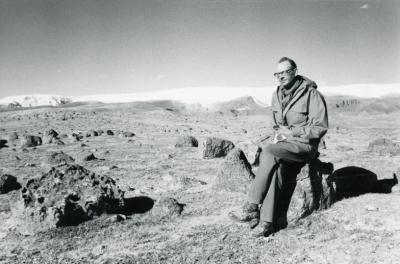
John Mercer was born in England in 1922 and served in the British Merchant Marine during WWII. He received his bachelor’s degree in geography from Cambridge University in 1949 and earned his PhD at McGill University in 1954 during his post-war residency in Canada. He arrived at The Ohio State University in 1960, and joined the Institute of Polar Studies.
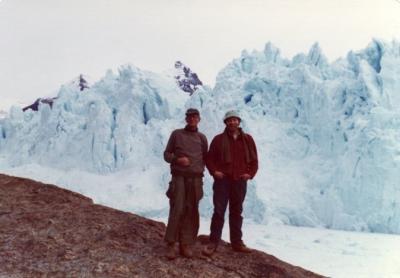
Mercer’s now famous paper, West Antarctic ice sheet and CO2 greenhouse effect: a threat of disaster, stated that “a major disaster- a rapid 5m (meter) rise in sea level, caused by deglaciation of West Antarctica- may be imminent or in progress after atmospheric CO2 content has only doubled. This concentration of CO2 will be reached within about 50 years if fossil fuel continues to be consumed at its recent accelerating rate, or within about 200 years if consumption is held constant at today's level.”[i] Despite the gravity of Mercer’s predictions, much of the science community chose to ignore Mercer’s predictions.
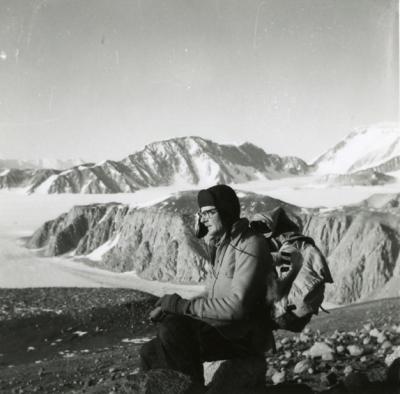
As we now know, Mercer’s words were prophetic. Ice caps are quickly dwindling in Antarctica and across the globe. Mercer further explained how, in addition to surface vulnerability, the West Antarctic Ice Sheets were also vulnerable at the base because rising temperatures in the ocean could also cause the ice sheets to begin melting. The combined effect of greenhouse gases and ocean temperatures could cause melting at such a rate that the ocean levels would begin to rise. While the rise in CO2 pollution was not as rapid as Mercer estimated, his prediction of the melting of the ice caps and the increase in sea level was spot on.
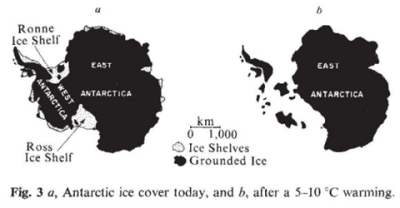
Mercer’s most famous protégé is Dr. Lonnie Thompson, a Distinguished University Professor at The Ohio State University and a world-renowned expert on glaciology with much of his research being used in modern studies on climate change. According to Lonnie Thompson, Mercer was labeled an alarmist[ii] after his article came out and he failed to attain funding because many of the scientific journals rejected his research. Glaciologists of the time even argued against Mercer’s findings, claiming his research read like a “grade B movie.”[iii] But Mercer’s predictions seem to be coming true; ice shelves are melting at an alarming rate and CO2 emissions are still rising.
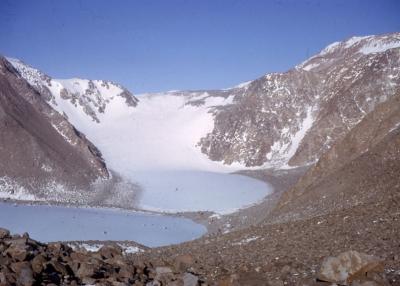
In 2014, two published research articles further validated Mercer’s predictions[iv][v]. One article, Marine Ice Sheet Collapse Potentially Under Way for the Thwaites Glacier Basin, West Antarctica was published in the journal Science by three scientists from the University of Washington: Ian Joughin, Benjamin E. Smith, and Brooke Medley. The melting of the West Antarctic Ice Sheet is proving to be unstoppable. Because of these newer findings, scientists began reevaluating the rise in sea levels as predicted by Mercer.[vi]
Sometimes it takes a lifetime of research and hypotheses to prove certain theories. John Mercer passed away in 1987[vii] before seeing his life’s work validated. Several features in Antarctica have been named in honor of John Mercer. In 2003, the Advisory Committee on Antarctic Names[viii] changed the name of Ice Stream A to Mercer Ice Stream. Mercer Ridge, a prominent, partly ice-free ridge in the Ohio Range is also named for John Mercer, as is Mercer Subglacial Lake. John Mercer is survived by his wife Judy and daughter Jane. While Mercer may have been disregarded during his own lifetime, his research continues to be referenced in the studies conducted today and will surely be used as a base-line for future research to come.
Related Resources about John Mercer:
- The finding aid for the John H. Mercer Papers
- More than 2400 images from Mercer’s collection have been digitized and can be viewed online
- The 2022 Polar Archives Research Award Winner, Gustavo Valdivia Corrales of Peru, utilized the John H. Mercer Papers in his research
- Please enjoy this wonderful tribute to Mercer by David Elliot, former Director of the Institute of Polar Studies.
- More on John Mercer- Journal of Glaciology
Footnotes
[i] J. H. Mercer, West Antarctic ice sheet and CO2 greenhouse effect: a threat of disaster, Nature 271, no. 5643 (1978): 321–25. https://doi.org/10.1038/271321a0.
[ii] Henry, Tom, Eccentric OSU scientist vindicated on melting, global warming predictions, 2014
[iii] Henry, Tom, Eccentric OSU scientist vindicated on melting, global warming predictions, 2014
[iv] Joughin, Ian, Benjamin E. Smith, and Brooke Medley, Marine Ice Sheet Collapse Potentially Under Way for the Thwaites Glacier Basin, West Antarctica, Science 344, no. 6185 (2014): 735–38. https://doi.org/10.1126/science.1249055
2014
[v] E. Rignot, J. Mouginot, M. Morlighem, H. Seroussi, B. Scheuchl, Widespread, rapid grounding line retreat of Pine Island, Thwaites, Smith and Kohler glaciers, West Antarctica, from 1992 to 2011, Geophysical Research Letters 41, no. 10 (2014): 3502–9.
[vi] Henry, Tom. “Eccentric OSU Scientist Vindicated on Melting, Global Warming Predictions.” The Blade. May 25, 2014.
[vii] OnCampus, Mercer, a ‘man ahead of his time,’ dead at 64, The Ohio State University, July 16, 1987.
More History Corner
How Did an Author Use the Polar Archives in Ohio to Write about an Antarctic Stowaway?
